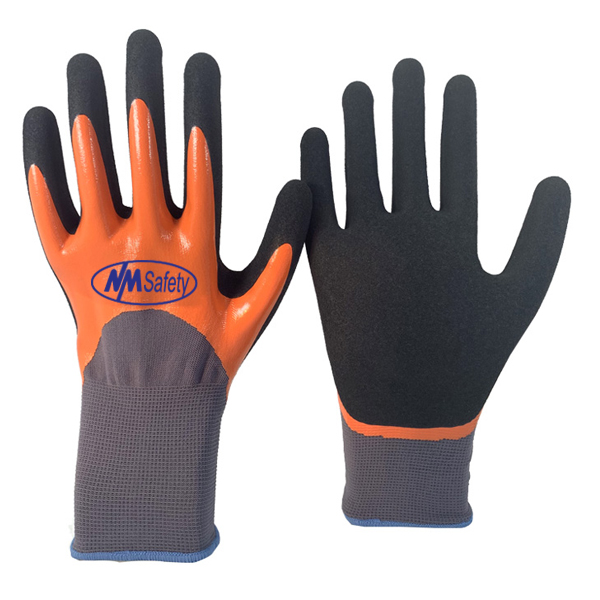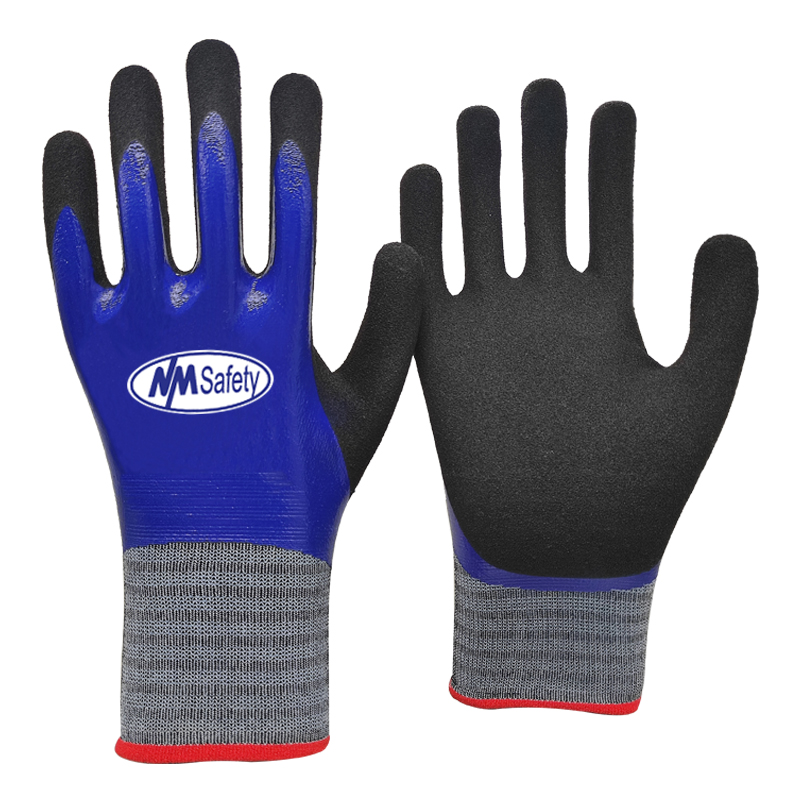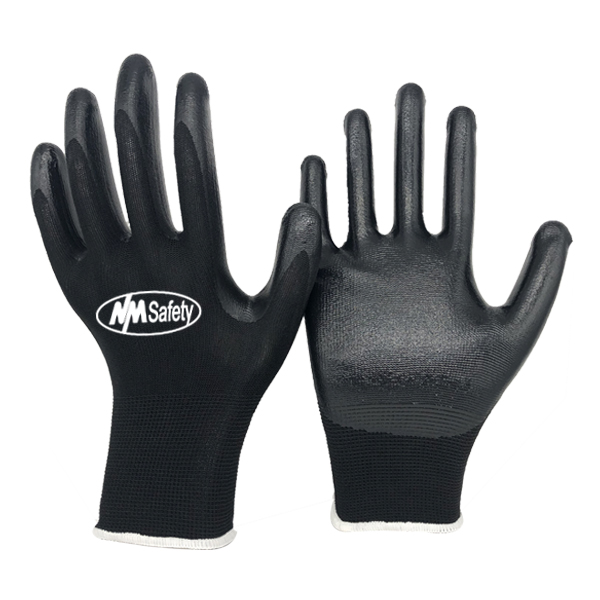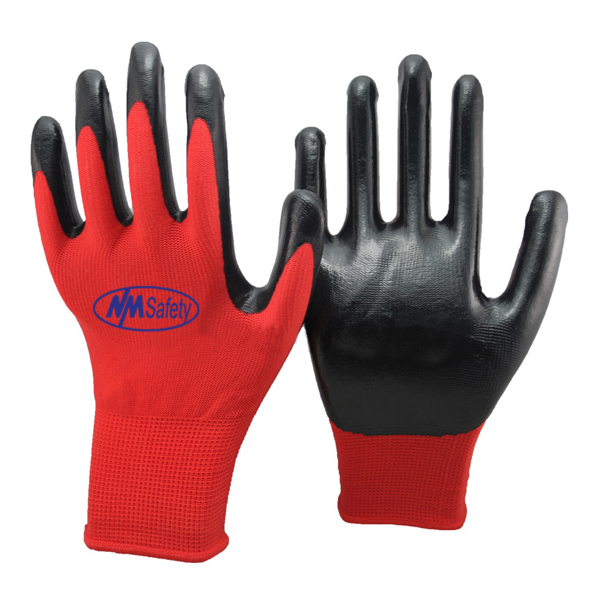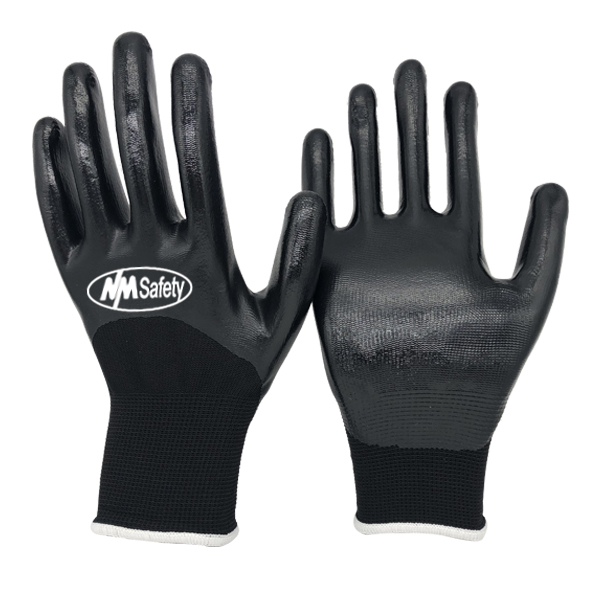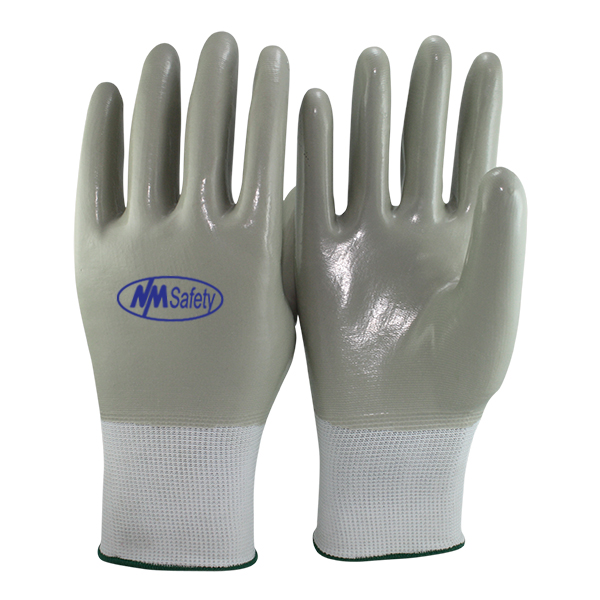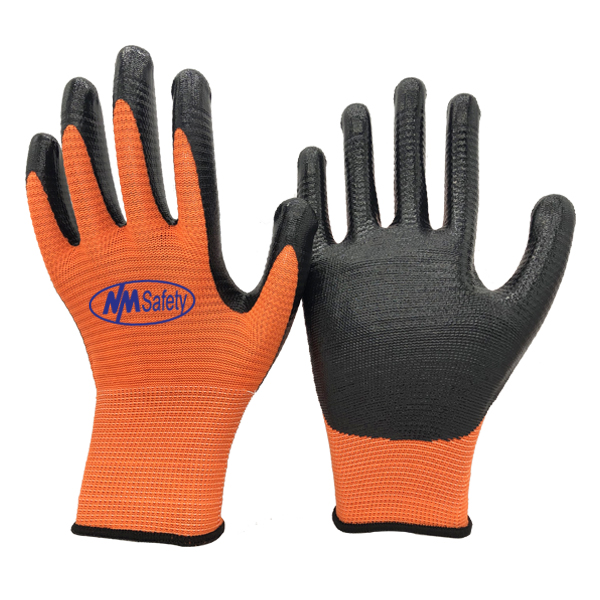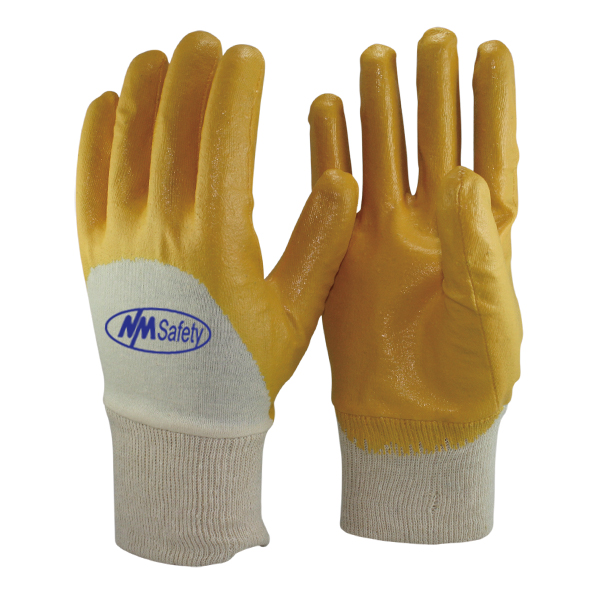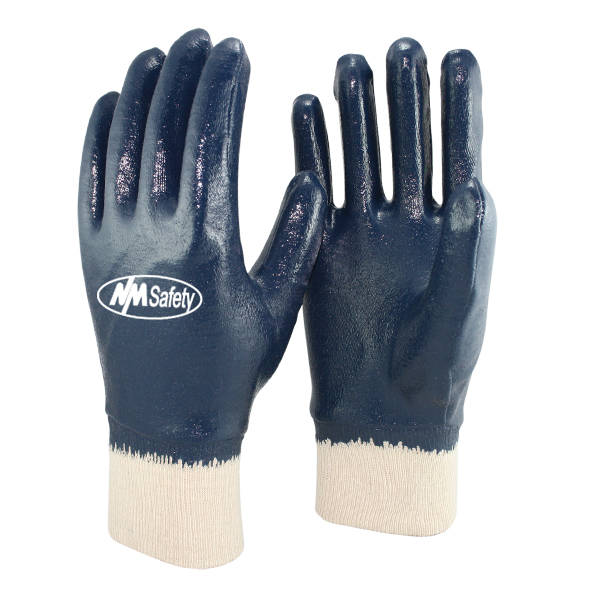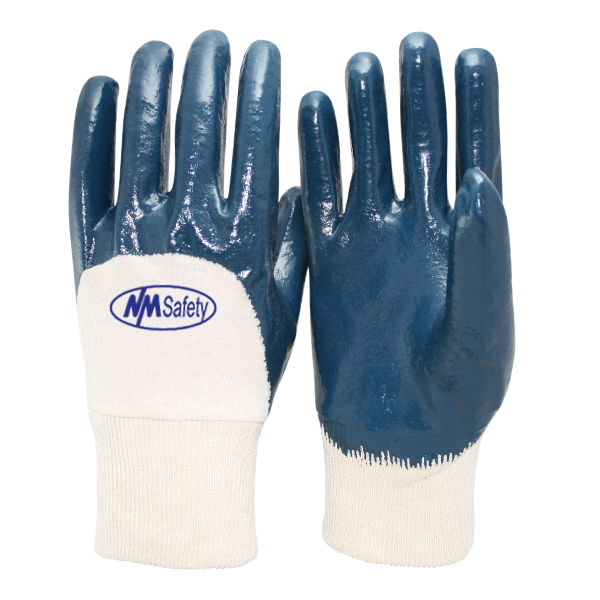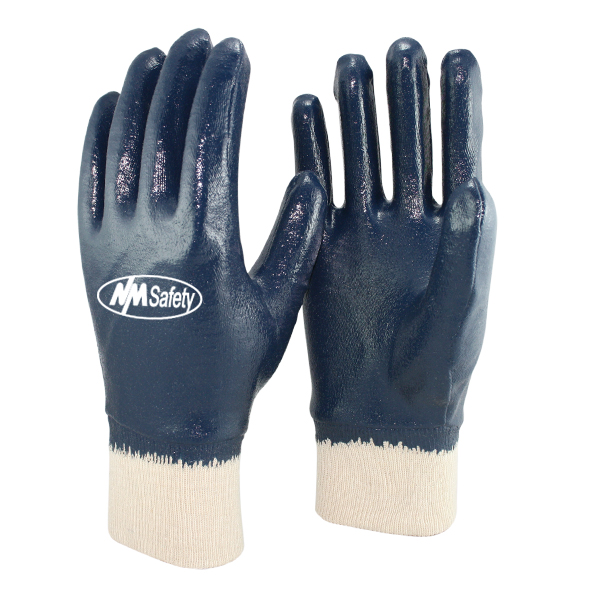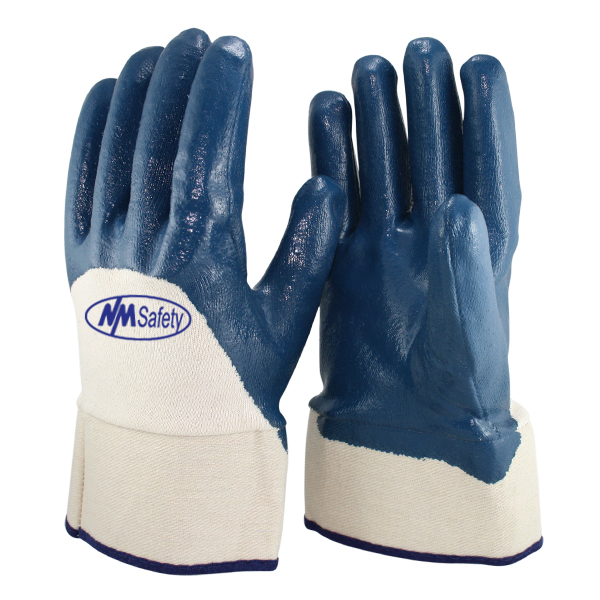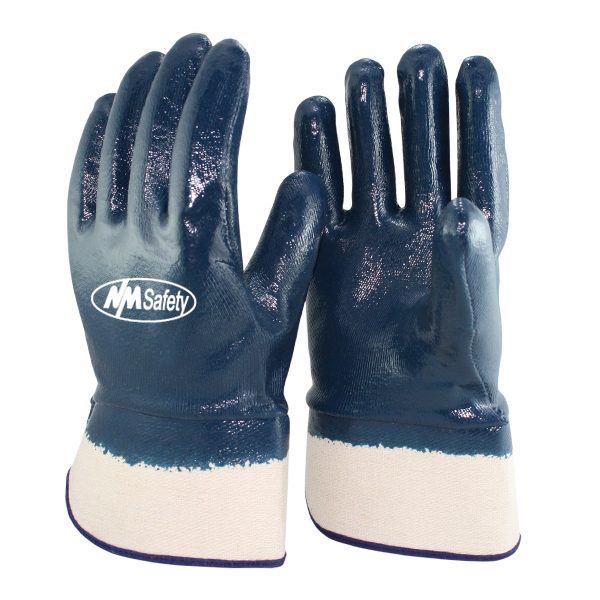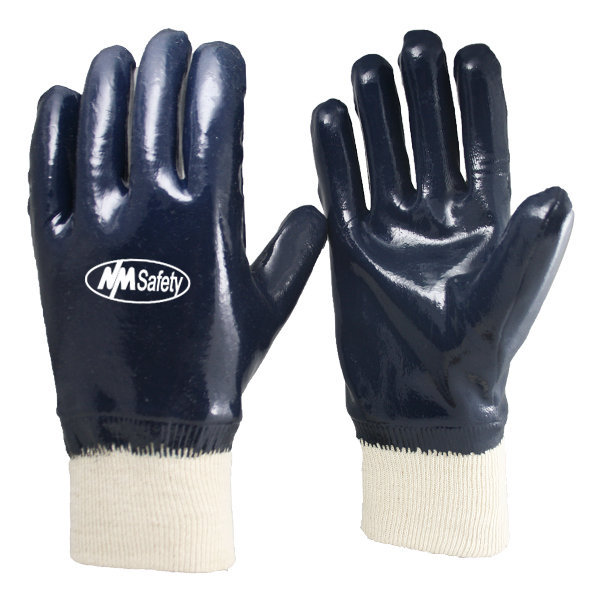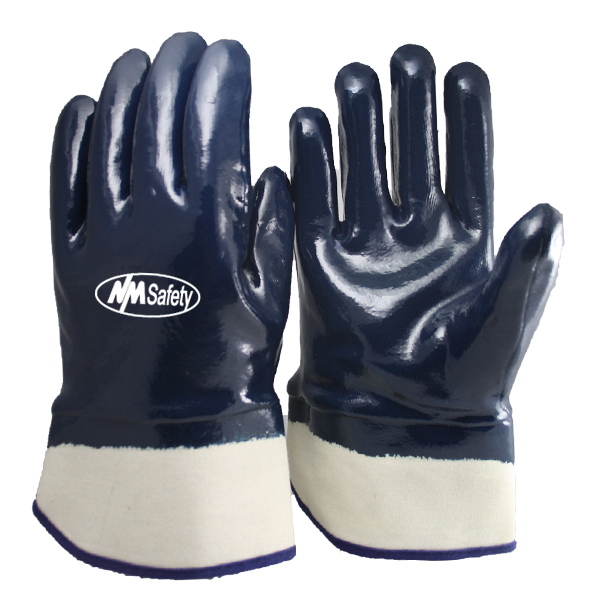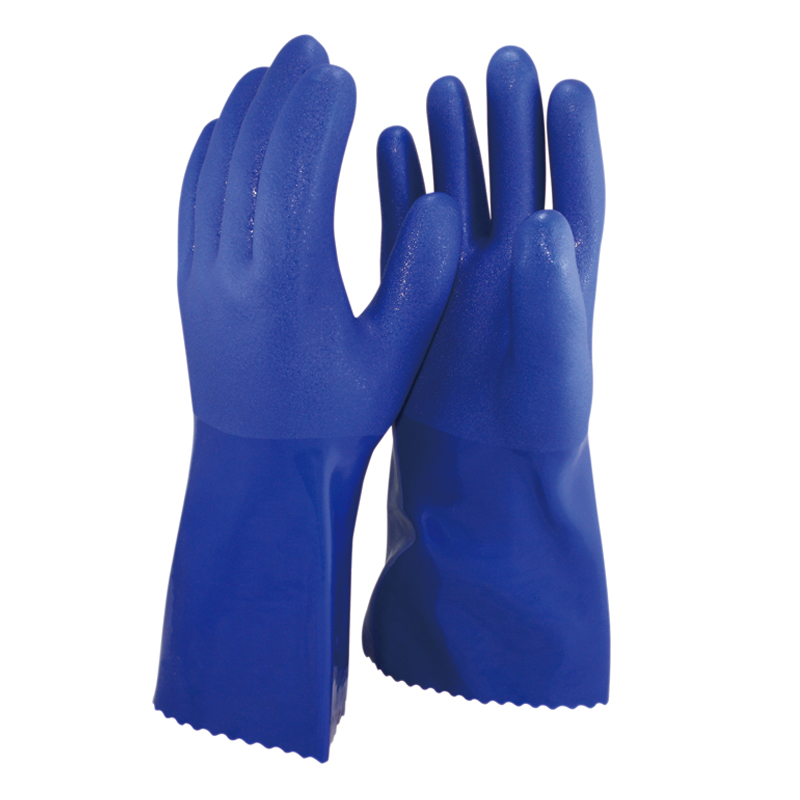Oil Resistant Gloves
Category
Industry
lf you can't find the product you need, please Email Us and we are happy to help.
What exactly are oil-resistant gloves?
Oil-resistant gloves, which are commonly used in the automobile industry, are designed to handle the intensive work that these workers do. As a result, put your faith in these sleek oil-resistant gloves to keep your hands protected and away from oil and chemicals.
Benefits Of Oil-Resistant Gloves:
When we've determined which industries can benefit from the use of anti-oil gloves, let's look at the bells and whistles of these impressive industrial protective gear:
1– Firm Grip:
The primary role of oil-resistant gloves is to provide mechanical workers with optimum grip because lifting oily objects is a regimen part of the job so it is critical to preserve that their hands are covered with an outer layer to have a firm grip over the articles being handled.
2- Shock absorbance:
These gloves not only withstand greasy liquids but also give excellent back-of-the-hand impact protection. Falling a large automotive part on the hand is always a possibility, and it can be exceedingly unpleasant as well as inflict significant bodily injury. The puncture-resistant feature soaks up shock and lessens injury severity.
3- Arc Flash Protection:
These multi-purpose gloves are capable of much more than just giving a secure grip. When operating with transformers, it's also critical to ensure that the employees are properly protected from arc flash. Synthetic fibers have a dual purpose in this approach since they guard against grease, shock, and arc flash.
4 – Chemical-Resistant Hand Protection:
People that work with chemicals are always at risk of chemical damage, which includes severe damage to the skin and chemical burns. As a result, chemical safety gloves, specifically latex or nitrile gloves, are necessary to protect against potential harm.
Types of Oil resistant Gloves:
Gloves made of latex and nitrile
Latex and nitrile gloves are commonly used in labs and medical centers to safeguard against the following:
- Biohazards
- Grease
- Liquids
- Oil
- Acids
Once the right size is worn, these gloves are form-fitting, contributing to increased flexibility while handling small objects and performing precision work. Latex and nitrile gloves, on the other hand, are ineffective against laceration as well as sharp, abrasive edges.
Gloves made of Nitrile Rubber:
Nitrile rubber is utilized to make adaptable, all-purpose gloves that can be employed in unexpected situations (i.e. disposable exam gloves). In circumstances where prolonged contact is required, thicker nitrile gloves are recommended.
Wearing nitrile gloves can shield you from:
- Liquids
- Oils derived from paraffin
- Gasoline
- Oils
- a few acids and bases
Gloves made of butyl rubber:
Because of its compact molecular structure, butyl rubber is chemically resistant to gases and ketones. Butyl gloves are only available in an approved form and are utilized by the defense forces for chemical warfare agent protection.
Gloves made of Neoprene:
Oils, burns, high temperatures, and a variety of other dangerous environmental variables are all protected by neoprene gloves. Not only that other harms such as bruising, lubricating oils, alcohols, gasoline, alkalis, and inorganic compounds are also all protected by them.
Factors to Consider when choosing Safety Gloves:
The first step in choosing the correct glove for the job is to examine the specific risks and hazards that the wearer is prone to face. Even a little scratch or cut can cause an infection, necessitating medical attention and time away from work.
Other points to consider are:
Accurate fitting: Look for the gloves that suit your hand size best. These gloves are available in different sizes from small to XL. Small gloves may loosen, and oversized gloves may impair dexterity.
Protection versus dexterity: a barter between these 2 variables is sometimes inescapable, and you'll have to figure out how to manage them.
Degrees of shielding: Gloves offer multiple layers of safety against a given hazard, and you should make sure that the glove you're using matches the task's requirements.
Effects of use: Always examine gloves for signs of wear and tear.
Expiry date: don’t use your gloves once the expiry date is over.
Some best anti-oil gloves recommendations:
Cut Resistant 5/A3/C Sandy Nitrile Coated Gloves Thumb Reinforce:
These gloves are the best available anti-oil gloves as they are made up of knitted liner containing 13 gauge nylon HPPE and glass fiber as it is the right material that someone is needed while performing any task regarding oil. Though they are not heavy-duty gloves they are smooth & breathable while a reinforcement between the thumb and index finger exactly on the pinpoint is made that helps the users to perform the work without feeling any irritation or negative thought as they’ll keep them safe from pinch or bruises to lacerations hazards. To make them oil-proof, their palms are coated with sandy nitrile which makes them perfect to get protection against abrasions while improving their durability, longevity, and grip.
Foam Nitrile Coated Gloves Nitrile Stripes:
Your anti-oil glove must contain good material like 15 gauge nylon & spandex knitted liner as knitted material going to keep you comfortable while HPPE and steel fibers are ideal to offer protection against the cut, oil, and impact. Foam nitrile is used as the second layer of coating to add excellent handgrip to them. Like many workers who wear simple nitrile gloves while working in the petroleum industry, they majorly complain about the losing grip. So to solve the issue foam nitrile has been used here as foam nitrile works better when it comes to slip resistance.
Final words:
You’re much aware of these anti-oil gloves now. Think about them as a mandatory PPE regime and keep these gloves in your bag like other food or medications because hand protection is necessary. To gain quality experience while purchasing your gloves you should choose NMSafety as they are the most authentic and trustworthy vendor.
REQUEST A QUERY


